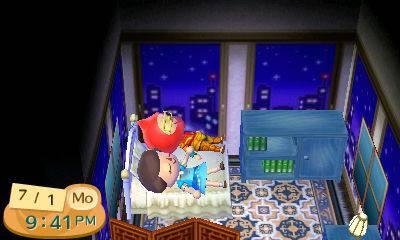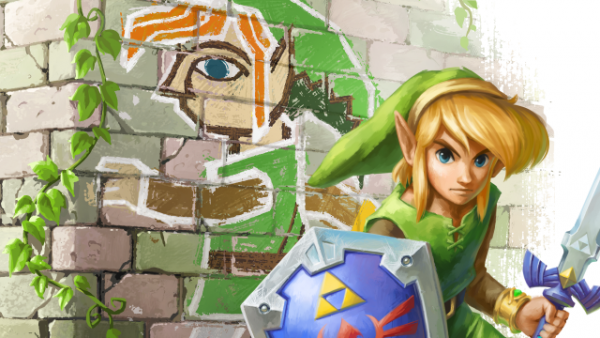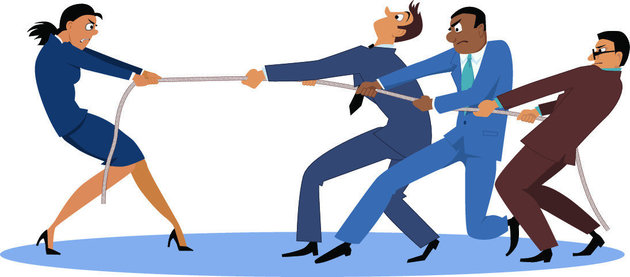Lately I’ve been wondering just what game culture is anymore. I’m a member of a number of gaming groups in my professional life, in my hobbies, and across the Internet, and conversations are never just restricted to games. In generally feminist/gamer spaces, conversations skew all over the place; in our own NYMG chat spaces, in fact, games are a frequent topic, but almost never the most frequent. In groups on Facebook for mothers who game, other topics come up, from fandoms to relationships to child-rearing, and we pitch in, even when we’re only linked by a single hobby, a hobby we don’t all enact in the same way. When I sit down to talk with other grad students and scholars who work in game studies, the conversations zigzag around, even if we set out to talk about games. After a bit, we’re talking about beer or a television show or lunch, or who knows what; it’s not all Sicart and ethics and who’s played Overwatch so far, because there’s so much else that ties us together. The rest of our lives bleed through. A visit to GamerGate and opposing spaces, like KotakuInAction and GamerGhazi, yields dozens of hot topics not related to games, and even other subreddits related, ostensibly, to games, may yield rich fields of other content: female gamers asking about playing with their significant others, or about changing their voices for online games; gamers posting images and creations not directly related to games, or discussing not necessarily play, but interaction around games. Forums like NeoGAF, which began as game spaces, also host rich communities around other topics, all topics, bringing together people who originally came for the games but often stayed for other things. Is that game culture? It doesn’t have to be all games, so where do we draw the lines?
In his book Synthetic Worlds: The Business and Culture of Online Games, Edward Castronova touches on this idea, as he paints the picture of someone chatting and performing other relationships while also playing an online game: conversation with the in-game friend extends to subjects beyond the game’s action itself, and at the same time, e-mails are coming in (about games and not), and how can we then label boundaries of the game space when faced with such blending of lives? Can we even say there is a game space any longer? Often, when I stream, particularly if I don’t post a notice anywhere, it’s friends who come into my Twitch channel, and we talk about other things. Is that all gaming? Castronova’s book is older now, but the questions raised hold. If anything, they’ve grown more complex when we bring in game context outside of games: forums, wikis, social media, more.
Once upon a time, gamers really were linked by simple existence within the fandom. I remember, as a teenager, going to shops to play Magic: The Gathering, and nearly always being able to find some crossover with the people around me, even if I didn’t think I would like them. Maybe we’d read the same books, or liked some of the same movies. Perhaps we had mutual friends or could gossip a bit while we played. But there was something else that ties us there: we were all outcasts in a sense, or at least outliers, playing a game that didn’t touch the mainstream.
Around the time I went to college, I made a friend, through the guy I was dating, who I couldn’t quite fit into any of the categories I’d established when thinking about gamers. You have to realize that this was a long time ago, before, say, mobile games became ubiquitous, before our parents and grandparents started playing iPad games, back when we really were all seen as neckbeardy nerds in black trenchcoats. That’s why Neil was so fascinating. He played, and he was amazing, smart and analytical, but also the bro-iest bro ever to bro, all khakis and white caps and cheap beer and sports. In a store full of goth kids and concert tees, piercings and long, unruly hair, he stood out.
I think about Neil a lot lately when I think about gaming spaces, because he wouldn’t stand out any longer, not like he did then. Maybe it was just my experience in Arkansas, but I don’t think that was quite the case. Gamers, people who choose that label, or who chose it then, shared something, and I remember often trying to tell myself I wasn’t really like that, I was. I was a big ol’ nerd, and it’s cool. It’s fine. I am okay with my nerdy self. But back then, it was a bit of a crisis. At 17, , 18, 19 I didn’t want to be a nerd; I had friends who weren’t, so why me? Nerd didn’t have the cultural cachet of the present day geek or nerd. Why was I a nerd just because I liked to play video and tabletop games? It didn’t matter much; back then that was all it took.
I don’t think that’s the case any longer, no matter how we sometimes separate ourselves. Some of our grad classes are cross-listed with undergrads, so we share gaming spaces with younger players, who grew up under different conditions. My own students, too, when they find out what I do, are often eager to talk to me about their own habits and fandoms, and what I’ve seen is that many of them don’t really label themselves “gamers.” They just think games are fun. They like to play. It’s not something they have to wear, but just something they do along with all the other things they do.
Did we have to wear it? Or did we choose to? I think sometimes that we did, that we had to band together because games weren’t everywhere back then. Sure, lots of people may have played a little Madden, a little Street Fighter, but they weren’t holed up like the gamers were. And in that group, we found safety, a sameness, a place where we could nerd out without eyerolls.
That’s not quite true, though; I rolled my eyes at many a person I thought was nerdier than I, and I’m sure I got eyerolled plenty, too. Was that space ever even safe? Did I assume it was? I remember being uncomfortable so often when I wasn’t with a close friend, or even better, a man; I remember always pulling on a persona of some sort, always meaner or funnier or more outgoing than how I felt, depending on the situation. I always had my guard up… perhaps because all that did tie us together was a love of games. Underneath, we were all very different people, with different values and ideas. Just people, you know, as people are, but it wasn’t until Neal that I could see that gamers really could just be anyone, and now, with the younger players I know, I see it more and more. But they don’t have to retreat, to band together; the billions of dollars that go into and come out of the gaming industry every year has seen to that. Gaming is fine. You don’t have to be separate or something else.
And yet so many of us still are. It’s there in the people who cling to the gamer identity, worried still about being shamed. It’s in the gaming scholars who are loud, aggressive, defensive, still worried about protecting what they do because it’s not rigorous or important to some. It’s in the women, certainly there, the women who tense when games come up because they want to talk about them, but are so used to being tested the minute games are mentioned. Because someone will start asking them questions, or treating them like a “fake gamer girl,” and even if it doesn’t happen that tension remains. It’s in so many of us gamers when we work hard to talk about or show how good we are at this game, or that, not because we love it, but because it proves we belong here. That this space is ours and no one can take it.
There I see difference between the players closer to my age, and older, and those who’ve come after. For us gamer wasn’t a choice; it was a label affixed, really, and so we claimed it, stuck a flag in it, decided it would be a badge and not a curse. Perhaps that’s why it was so hard for many gamers to deal with the so-called “gamers are dead” articles in late 2014, which really weren’t anything new or anything terrible, but just talking about the same ideas I’m talking about here (that have been talked about for a while): the culture around gaming is changing. Not completely, not always quickly, but the world moves on.
I wonder sometimes, maybe often, when this will fade. When we’ll learn to relax a little. To just play. Maybe that freedom is another generation away yet; after all, the separation, the narrowed eyes, the testing, the banding together, it’s already in our children. I see it with my son and the kids in his friend groups. Maybe it’s a part of our cultural need to categorize and separate, to create social hierarchies. Maybe it’s just about gender; we do see more of that in the children—the boys aren’t questioned, but the girls more often are, and the nonmale undergrads we talk with often report similar instances. For them, there are still badges that must be earned. Boundaries. Maybe my daughter, five years younger than my son, will struggle less with it; maybe the next sets of children, five, ten years after her, will see still less. Or maybe we will see this striation for the rest of our lives, furrows, ridges of acceptance/nonacceptance, internal and external, for years to come. I don’t know. Our obsession with boundaries and edges and categories is still so strong in gaming, moreso by far than in other forms of media. Maybe it’s just part of who we are. But most days, I hope for better. I hope we’ll keep finding ways to break through.




